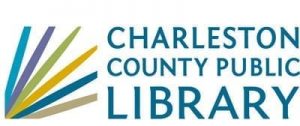Charleston County Public Library offers free solar eclipse programs and safety glasses
July 10, 2017Charleston County Public Library (CCPL) will provide numerous opportunities in August for residents of all ages to learn about the upcoming solar eclipse and pick up a pair of free safety glasses.
A total eclipse of the sun will be visible Aug. 21 in the continental United States for the first time in almost 40 years. Eclipse-themed events at CCPL branches include a hands-on activity session with NASA specialists, lectures by College of Charleston Astronomy Department representatives, crafts, stories, and the distribution of thousands of free glasses to safely view the solar eclipse.
“This historic event is an opportunity to connect with our patrons and equip them with useful knowledge about this rare occurrence,” said CCPL Executive Director Nicolle Davies. “We’re also thrilled to give away solar eclipse glasses in order to promote safe viewing practices.”
Beginning July 5, 500 pairs of safety glasses will be available to pick up at the Main Library Circulation Desk. This free giveaway is limited to one pair of safety glasses per household member while supplies last. Additional safety glasses will be available to pick up at CCPL branches that host eclipse-related events in August.
The only safe way to look directly at an uneclipsed or partially eclipsed sun is through special purpose solar filters, such as eclipse glasses or handheld solar viewers. The safety glasses distributed by CCPL feature scratch-resistant polymer lenses that filter out 100% of harmful ultra-violet and infrared rays and 99.999% of intense visible light. The glasses are generously provided by the Space Science Institute, which is supported by the Gordon and Betty Moore Foundation, Google, National Science Foundation and NASA.
Weather permitting, the eclipse will be visible across all of North America. The entire continent will experience a partial eclipse lasting two to three hours. Anyone within a 70-milewide path that stretches through 14 states, including South Carolina, will experience a total eclipse. During those brief moments when the moon completely blocks the sun’s bright face for about two minutes, day will turn into night and the solar corona, the sun’s outer atmosphere, will become visible along with bright stars and planets.
Click here to learn how to get your free safety glasses and review a schedule of eclipse-related events at your local CCPL branch.




















